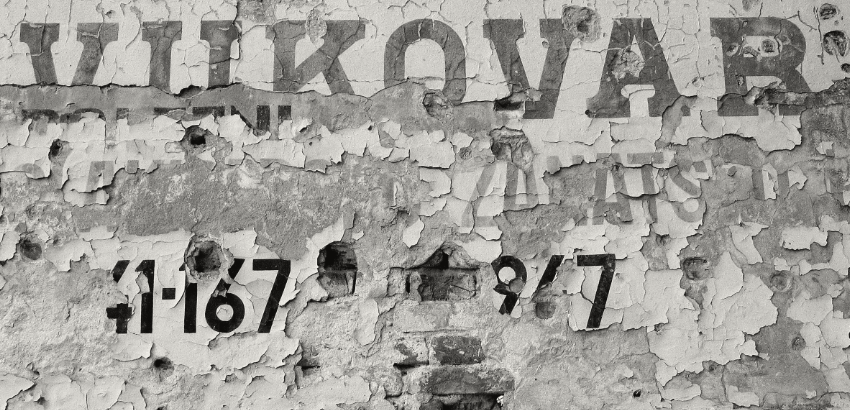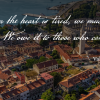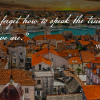
Published: January 15, 1998
View Original Newsletter: Cirkular-3.pdf
The third issue of Cirkular, released at the start of 1998, captures a powerful moment in Croatia’s post-war history. It was the month when Vukovar and Eastern Slavonia were peacefully reintegrated into Croatia, marking the true end of the Homeland War. This issue celebrates that victory, honors those who made it possible, and reminds readers that rebuilding peace requires as much courage as fighting for freedom.
A Historic Homecoming
The lead article opens with the words “Finally, Croatia is whole again.” On January 15, 1998, after two years of UN administration under UNTAES, the regions of Vukovar, Ilok, and Baranja were officially returned to Croatian control.
Valentina Krčmar writes with emotion about the significance of that day. She describes how, after seven years of war and loss, Croats around the world watched the Croatian flag rise again over Vukovar. For many, it was not just a political victory but a moment of healing and national rebirth.
She praises President Franjo Tuđman and Minister Mate Granić for guiding the process peacefully, despite international skepticism. The tone is one of pride mixed with quiet reflection — a recognition that the war’s end brings new responsibilities: rebuilding homes, rebuilding trust, and rebuilding the nation’s soul.
Voices from the Front and the Diaspora
Several contributors reflect on what the reintegration means for Croats abroad. Letters from readers in Canada, Germany, and Australia express joy and relief that their homeland has finally achieved unity. One Toronto reader writes that “Croatia is finally standing on both feet — strong, proud, and free.”
The paper also includes excerpts from Croatian state news agency HINA, describing the UN ceremony in Vukovar attended by Croatian and international officials. Reports emphasize the disciplined, peaceful transfer of authority and the professional conduct of the Croatian police and armed forces as they re-entered the city.
Remembering Vukovar’s Sacrifice
A moving editorial titled “We Have Not Forgotten” pays tribute to the victims of the 1991 siege of Vukovar — soldiers, medical workers, and civilians who perished in the city’s defense.
The writer recalls how, for years, Croats abroad lit candles and held vigils every November 18 to remember those who fell. Now, with the city returned, the article calls for a different kind of remembrance — one focused on rebuilding and ensuring that the sacrifice of Vukovar’s defenders leads to a lasting peace.
The piece ends with a simple message: “Their courage rebuilt our borders. Our gratitude must rebuild their city.”
Looking Ahead: Croatia and the World
The mid-section of the issue turns toward politics and diplomacy. Articles summarize Croatia’s position in the international community at the start of 1998:
-
Foreign Minister Mate Granić outlines foreign-policy goals for the year, including deeper cooperation with the European Union, NATO’s Partnership for Peace, and stronger regional diplomacy in Southeastern Europe.
-
The Croatian government announces new programs for refugee return, housing reconstruction, and economic renewal in war-affected regions.
-
Reports from HINA describe improving relations with Bosnia and Herzegovina, particularly on border and trade issues.
-
A brief editorial praises Canada’s ongoing humanitarian assistance to Croatian reconstruction and its support for Croatian cultural life through diaspora organizations.
Life in the Croatian-Canadian Community
Back in Toronto, Cirkular continues to serve as the voice of Croatian immigrants. Community news includes:
-
Announcements from Our Lady Queen of Croatia Parish about upcoming Masses and cultural programs.
-
A report on the Croatian Credit Union’s annual meeting, celebrating its strong financial growth and community involvement.
-
A short feature on students of Croatian heritage at the University of Toronto organizing cultural exhibits about post-war Croatia.
-
Notices for charity events, folklore groups, and winter gatherings hosted by the Croatian Women’s Society “Katarina Zrinska.”
These small updates create a sense of shared pride — proof that the diaspora continued to nurture Croatian identity across generations.
Editorial by Valentina Krčmar: “The Meaning of Peace”
Krčmar closes the issue with a thoughtful reflection on what peace truly means. She reminds readers that peace is not only the absence of war but the presence of justice and human dignity.
She urges Croatians not to forget those still missing or imprisoned and calls for continued international attention to unresolved humanitarian cases. Her tone is hopeful yet grounded, insisting that Croatia’s next victory must be moral and spiritual — building a country defined not by conflict but by compassion.
Her closing words capture the mood of the nation:
“We fought for freedom. Now we must learn to live it.”
Final Reflection
Cirkular No. 3 is both a celebration and a meditation. It captures the relief and pride of a nation reunited while reminding readers that peace requires purpose.
Through Valentina Krčmar’s words and the voices of the Croatian diaspora, the issue stands as a record of triumph tempered by humility. It marks the moment Croatia became whole — and began the long, hopeful work of healing.




